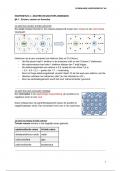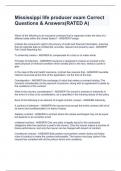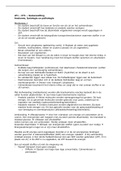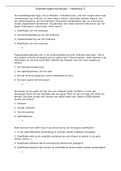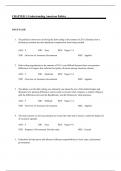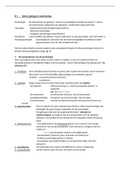AQA English Literature
Love and Relationship Anthology
NEUTRAL TONES
by Thomas Hardy
We stood by a pond that winter day, * devoid of colour/ devoid
And the sun was white, as though chidden of God, of warmth/ reflecting
And a few leaves lay on the starving sod; the end of their love
– They had fallen from an ash, and were gray.
Your eyes on me were as eyes that rove
Over tedious riddles of years ago; * oxymoronic phrase;
And some words played between us to and fro riddles are intrinsically
On which lost the more by our love. intriguing
The smile on your mouth was the deadest thing
Alive enough to have strength to die;
And a grin of bitterness swept thereby * diction that has
Like an ominous bird a-wing… connotations of
Since then, keen lessons that love deceives, infidelity and deep
And wrings with wrong, have shaped to me hurt
Your face, and the God-curst sun, and a tree,
And a pond edged with grayish leaves. * personal pronouns for
facial features; contradicts
neutrality
, 1ST person narrative and therefore the perspective of the other person is not revealed to
us other than the revelation that there is a “bitterness”. The catalyst for this
“bitterness” is not disclosed although the diction infers that there was a wrong-doing.
The poet reflects over his relationship and recalls a moment of realisation that the love
between himself and his partner had died. It is therefore a love poem but focuses on the
sadness of the end of a relationship rather than the joy of sharing love. The title itself
gives an indication that the poem is not full of exuberant passion or painful heartbreak;
the tone is “neutral” and unemotional.
The four stanzas of the poem are all written from an individual first-person perspective.
Given the subject matter, the reader might expect the poet to be bitter and resentful
about what had happened in the past but as the title highlights, the speaker seems to be
almost neutral about the experience. The word ‘neutral’ connotes indifference and
nonchalance, feelings that are not traditionally associated with the loss of something
precious. Underneath the surface, however, a sense of loss and regret is hinted at,
which perhaps suggests that the loss of love is something which is difficult to remain
neutral about. The overall feeling however is one of acceptance and resignation. There
is an acceptance perhaps that with the passage of time many things change and that a
relationship cannot be sustained for ever. Can it perhaps be that acceptance is
something that accompanies the aging process? it is perhaps a natural realisation that
time brings many changes. There is a suggestion that with age we develop a sense of
moderation on our emotions and the passions of our youth subside and fade away.
The imagery used reflects the poet’s apparent lack of emotion. He is ‘neutral’ and
accepting; there does not appear to be any extremity of sentiments felt by him.
Everything is described as lifeless and decaying and the vibrancy of nature has been
replaced by an absence of colour – grey and white dominate. Even the sun is depicted
as being devoid of its warmth-giving properties, being now a cold “white”.
Amidst the neutrality however there are hints towards a former ‘hurt’ or possibly a
betrayal. Words such as ‘bitterness’, ‘deceives’, ‘ominous’ and ‘wrong’ indicate a
wrong-doing of some kind however this is not elaborated upon. The hard sounding
alliteration of “wrings with wrong” emphasises the hurt and bitterness that exists
between them. The word ‘grim’ also gives the poem a sardonic tone; her smile is dead
and it is now a ‘grin’ and this carries connotations of distain and bad feeling. These
negative words contradict the title of the poem to a degree as feeling of bitterness and
having been deceived cannot be construed as neutral. It could be read however in the
sense that these negative feelings are remnants of past events and that with the
passage of time a blanked of neutrality has enshrined them. The colour ‘grey’ is referred
to twice in the poem; grey is associated with the process of fading and it therefore
Love and Relationship Anthology
NEUTRAL TONES
by Thomas Hardy
We stood by a pond that winter day, * devoid of colour/ devoid
And the sun was white, as though chidden of God, of warmth/ reflecting
And a few leaves lay on the starving sod; the end of their love
– They had fallen from an ash, and were gray.
Your eyes on me were as eyes that rove
Over tedious riddles of years ago; * oxymoronic phrase;
And some words played between us to and fro riddles are intrinsically
On which lost the more by our love. intriguing
The smile on your mouth was the deadest thing
Alive enough to have strength to die;
And a grin of bitterness swept thereby * diction that has
Like an ominous bird a-wing… connotations of
Since then, keen lessons that love deceives, infidelity and deep
And wrings with wrong, have shaped to me hurt
Your face, and the God-curst sun, and a tree,
And a pond edged with grayish leaves. * personal pronouns for
facial features; contradicts
neutrality
, 1ST person narrative and therefore the perspective of the other person is not revealed to
us other than the revelation that there is a “bitterness”. The catalyst for this
“bitterness” is not disclosed although the diction infers that there was a wrong-doing.
The poet reflects over his relationship and recalls a moment of realisation that the love
between himself and his partner had died. It is therefore a love poem but focuses on the
sadness of the end of a relationship rather than the joy of sharing love. The title itself
gives an indication that the poem is not full of exuberant passion or painful heartbreak;
the tone is “neutral” and unemotional.
The four stanzas of the poem are all written from an individual first-person perspective.
Given the subject matter, the reader might expect the poet to be bitter and resentful
about what had happened in the past but as the title highlights, the speaker seems to be
almost neutral about the experience. The word ‘neutral’ connotes indifference and
nonchalance, feelings that are not traditionally associated with the loss of something
precious. Underneath the surface, however, a sense of loss and regret is hinted at,
which perhaps suggests that the loss of love is something which is difficult to remain
neutral about. The overall feeling however is one of acceptance and resignation. There
is an acceptance perhaps that with the passage of time many things change and that a
relationship cannot be sustained for ever. Can it perhaps be that acceptance is
something that accompanies the aging process? it is perhaps a natural realisation that
time brings many changes. There is a suggestion that with age we develop a sense of
moderation on our emotions and the passions of our youth subside and fade away.
The imagery used reflects the poet’s apparent lack of emotion. He is ‘neutral’ and
accepting; there does not appear to be any extremity of sentiments felt by him.
Everything is described as lifeless and decaying and the vibrancy of nature has been
replaced by an absence of colour – grey and white dominate. Even the sun is depicted
as being devoid of its warmth-giving properties, being now a cold “white”.
Amidst the neutrality however there are hints towards a former ‘hurt’ or possibly a
betrayal. Words such as ‘bitterness’, ‘deceives’, ‘ominous’ and ‘wrong’ indicate a
wrong-doing of some kind however this is not elaborated upon. The hard sounding
alliteration of “wrings with wrong” emphasises the hurt and bitterness that exists
between them. The word ‘grim’ also gives the poem a sardonic tone; her smile is dead
and it is now a ‘grin’ and this carries connotations of distain and bad feeling. These
negative words contradict the title of the poem to a degree as feeling of bitterness and
having been deceived cannot be construed as neutral. It could be read however in the
sense that these negative feelings are remnants of past events and that with the
passage of time a blanked of neutrality has enshrined them. The colour ‘grey’ is referred
to twice in the poem; grey is associated with the process of fading and it therefore

